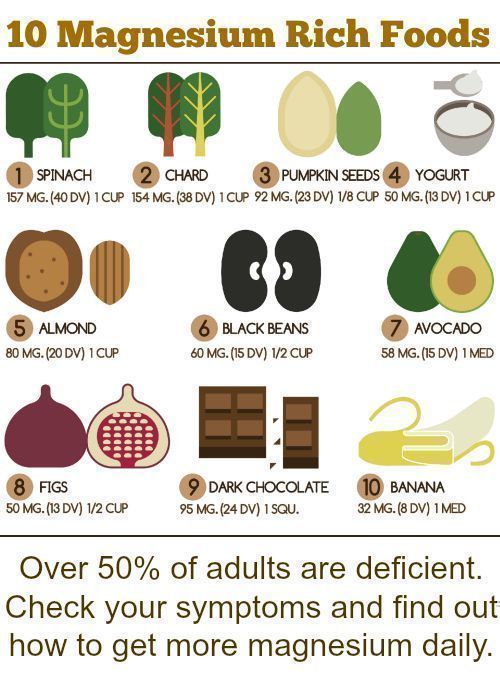
Just a few days ago, we mentioned that we were able to deal and cope with anxiety through less traditional methods (Prescriptions/Medication) with a combination of Exercise, Diet, and much more. You can read that post here.
It wasn’t easy to do – it was a very long process of trial and error. It required us to plan our meals better – we already did, but it required even MORE of an overhaul…. it required us to change our shopping habits. Put on blinders to avoid industry sales on food – even though some may have been cheap. It meant conditioning ourselves to think about every single thing we put in our mouth – cutting back on our stressors (believe it or not, Facebook, birthday parties, getting together with friends, and more).
But what is amazing is how resilient the body is in dealing with changes. You underestimate the body’s ability to react to these changes, and in reality, they really DO make some pretty huge differences, even more-so over time.
One of the ways we dealt with the issues he was experiencing was by taking a magnesium supplement. We mentioned that most people are deficient in magnesium – less than 30% of US adults consume the recommended daily allowance of Magnesium… and less than 20% get even half of what they are required each day (Src). It’s no wonder why we are always tired and stressed with headaches.
A magnesium deficiency can lead things like constipation, anxiety, muscle cramps, anger, high blood pressure, fatigue, headaches, and even more. (Src)
There are several reasons why we are deficient – one of the biggest reasons is the pesticide being used on our food (Corn, Soy, Wheat, Cotton, etc.) – which deplete the soil of the minerals required for not only good soil health but also for our GOOD gut bacteria.
There are also OTHER reasons why a magnesium deficiency happens too ~ it involves what you eat, how you feel, and what you take to deal with the effects of those put together.
- Consumption of Sugar: For every molecule of sugar we consume, we nee 54 molecules of magnesium to process it.
- Daily Stress: Constantly, from Money issues to lifestyle problems, even health problems. We deal with that stress daily and it drains us. Stress hormone production requires a high level of magnesium, and when we stress it depletes our magnesium stores.
- Medications: Prescriptions and Over the Counters can both deplete our magnesium stores – as well as caffeine. Not to mention that the fluoride in your toothpaste competes for absorption with magnesium too (make your own all too easily!)
- Processed Foods: Foods that are processed (which account for 85% of what is on the shelf in stores) NEED magnesium in your body in order to be metabolized. Sugar is the devil in this case.
Here are several things that can ultimately affect your body’s ability to handle magnesium.
#1 – Eating Sugary Foods
Sweets like donuts, cakes, desserts and candy all consume your body’s nutrients when ingested, but actually have anti-nutrients. Items with refined sugar cause the body to get rid of magnesium through the kidneys – so not only are they lacking nutrients, they strip your body of nutrients and magnesium entirely.
#2 – Sugary Drinks
Not only are sugary drinks similar to eating sugary foods, darker colored drinks that are carbonated like soda have phosphates. Phosphates bind with magnesium inside your digestive tract. While eating a balanced diet is great, washing it down with soda is actually doing nothing good for you as it’s flushing the magnesium OUT of your body.
One of several reasons to give up drinking soda.
#3 – Drinking Caffeinated Drinks
The Kidneys are the #1 “controller” of your body’s magnesium levels… as they filter and excrete excess magnesium and various other minerals. Caffeine consumption encourages the body to release excess magnesium – even if you don’t particularly need it.
By releasing that extra magnesium, your risk for deficiency goes up as your body loses more and more.
#4 – Alcohol
Much like Caffeine, alcohol lowers the magnesium available to your cells too – alcohol, too, encourages your body to release excess magnesium.
#5 – Taking certain medications
Many people are on prescriptions – from asthma to birth control, estrogen replacement or even heart problems – medications that can cause magnesium deficiency include antibiotics, painkillers, and diuretics, estrogen (found in birth control), anticancer drugs, radiation, and medications used to treat asthma (Src).
Although you may feel that they help you in some ways, they actually do one of two things: they impair absorption of magnesium by the kidneys or increase excretion OF magnesium by the kidneys.
#6 – Stress, and other Factors
Stress is a HUGE contributor to magnesium deficiency – and a lack of magnesium can further worsen. When you are stressed, your body uses and requires MORE magnesium …. unfortunately, your continued stress worsens the problem as it pulls magnesium
Aging and Illness also increase the body’s need for magnesium, as they both reduce the acid levels in the stomach.
Your current health is a huge factor in how successful magnesium is absorbed into your body – if you are deficient in minerals (iron, calcium) then your body will struggle to break down that magnesium and further, make it harder for the small intestine to absorb, too.
The Role of Diet and Magnesium Levels
Unfortunately we are at a time right now where processed food sales are at an all time high – it’s much too common and convenient to pick up easy foods like Kids Cereals, Bars, Fruit Juice, and Frozen Pizzas in the store… As Americans, our diets are rich in fats, and sugars – and foods that are high in sodium (packaged foods).
All you have to do is take a look at coupons that are available to print and redeem in store – over 90% of them ar for processed food items or toxic cleaning chemicals (which would essentially be easier to make yourself).
It’s fairly common to ask kids what they eat for breakfast and listen to responses like “Pop Tarts” – or, “Cereal”… I know at my child’s school, being on the school provided breakfast (at a cost) is simply a container of sugary kids cereal and a donut. I’m not sure if that’s the norm at other schools but it is at ours, and is the #1 reason we eat at home.
Visit your local grocer and pick up greens and you will find the cashier stumped at the checkout, not sure whether to punch in the PLU (code) for Chard, or Kale… they might even ask you what it is, because they literally have NO idea.
Ask most kids what they eat regularly and their responses will be “Chips” – or, “French Fries” (and for some, it’s SONIC, or, even those little cute tubs of mac & cheese you heat up in the microwave that are often times on sale for $.50 at the grocery store.
You don’t even have to drive to McDonalds to see kids guzzling soda. All I have to do is drop off my 9 year old at school to see kids her age walking into the school with Starbucks. … or ask my kids how lunch was at school and listen to them tell me that the kids at their table had Cheetos and Capri Sun in “their” lunchbox.
Doesn’t that seem a little much?

Photo Credit: Run to the Finish
Each of these eating habits has an effect on magnesium in your diet. But what your body actually uses is different than what is found in the foods above, or supplements you might take.
The amount of magnesium your body actually absorbs is very dependent on the changes you make to your diet and lifestyle – as noted above – everything from caffeine to dark sodas, mediations, alcohol, aging, stress, and more can all inhibit absorption and cause LESS magnesium to be absorbed.
If you find yourself with headaches, frequent anxiety, or even sleep problems, or even high blood pressure, you might want to take a look at your lifestyle and dietary habits. Not only can drinking more water help with some of those issues, so can eating better and avoiding foods that are lacking in nutrients.



